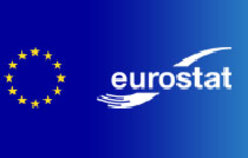Germany helps Eurozone avoid falling back into recession
The 17-member eurozone and 27-member European Union avoided falling back into recession in the first quarter of the year, with few countries like Germany, Finland, Lithuania, Latvia, Estonia and Belgium confounding expectations with a positive growth.

The EU's statistics office Eurostat in data release Tuesday of the flash estimate for the first quarter of 2012 said the growth was flat for the eurozone, while the EU27 registered marginal 0.1 per cent growth when compared to the previous three-month period.
The growth data belied expectations of a 0.2 per cent decline.
As a result, the eurozone avoided falling back into recession officially defined as two consecutive quarters of negative growth.
In the last quarter of 2011 the growth rates contracted by 0.3 per cent in both the zones.
Compared with the same quarter of the previous year, seasonally adjusted GDP remained stable in the euro area and increased by 0.1 per cent in the EU27 in the first quarter of 2012, after 0.7 per cent and 0.8 per cent respectively in the previous quarter, Eurostat said.
The overall flat performance hides huge disparities in the eurozone, with the debt-ridden countries mired in recession.
Comparatively, during the first quarter of 2012, in the United States GDP growth increased by 0.5 per cent compared with the previous quarter (after 0.7 per cent in the fourth quarter of 2011).
While in the same quarter of the previous year, GDP rose by 2.1 per cent in the United States (after 1.6 per cent in the previous quarter).
Germany, Europe's biggest economy, was primarily behind the better-than-expected performance in the EU as a strong export performance helped the economy bounce back from a slight fall in output of 0.2 per cent in the fourth quarter of last year to grow by 0.5 per cent in the first quarter despite Europe's debt crisis.
Unemployment is low in Germany and exports of manufactured goods such as automobiles and machinery remain robust.
Compared to the same quarter a year ago, Germany grew 1.7 per cent.
The European Commission expects the economy in the 17 countries that use the euro to shrink 0.3 per cent this year.
Unlike Germany, the French economy recorded zero growth in the first quarter, after a positive growth of 0.1 per cent at the end of 2011.
The French GDP figures coincide with the inauguration of the new French President Francois Hollande, who has vowed to boost economic growth.
In the run up to the presidential election, in which he ousted Nicolas Sarkozy, he campaigned hard for measures focusing that have been adopted across the eurozone.
He will visit German Chancellor Angela Merkel later on Tuesday to make the case for stimulating the economic growth alongside implementing the austerity measure.
Source: Germany News.Net
- 482 reads
Human Rights
Fostering a More Humane World: The 28th Eurasian Economic Summi

Conscience, Hope, and Action: Keys to Global Peace and Sustainability

Ringing FOWPAL’s Peace Bell for the World:Nobel Peace Prize Laureates’ Visions and Actions

Protecting the World’s Cultural Diversity for a Sustainable Future

Puppet Show I International Friendship Day 2020

